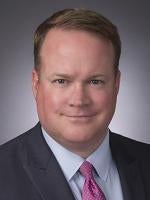On December 16, 2022, the National Labor Relations Board (“NLRB” or “Board”) abandoned the employer-friendly access standard for off-duty employees of an onsite contractor that was adopted under the Trump Administration in Bexar County Performing Arts Center Foundation d/b/a Tobin Center for the Performing Arts and Local 23, American Federation of Musicians, 368 NLRB No. 46 (2019)(“Bexar County I”). Given a chance to revisit the Trump-era standard, the current Board, seeing “no reason to attempt to rehabilitate a standard that fundamentally fails off-duty contractor employees by almost always denying them their right to engage in Section 7 activities at their workplace,” rejected the access standard from Bexar County I and reinstated the previously court-approved (and union advantageous) standard announced in New York New York Hotel & Casino, 356 NLRB 907 (2011), enfd. 676 F.3d 193 (D.C. Cir. 2012), cert. denied 568 U.S. 1244. See Bexar County Performing Arts Center Foundation d/b/a Tobin Center for the Performing Arts and Local 23, American Federation of Musicians, 372 NLRB No. 28 (2022) (Bexar County II).
Under New York New York and now once again under Bexar County II, a property owner may lawfully exclude from its property off-duty employees who regularly work on the property for an onsite contractor and who seek to engage in Section 7 activity on the property only where the property owner is able to demonstrate that the contractor employees’ Section 7 activity significantly interferes with the use of the property or where exclusion is justified by another legitimate business reason, including, but not limited to, the need to maintain production and discipline.
The Bexar County I Standard
Bexar County I concerned the San Antonio Symphony, which leases performance space from the Tobin Center for the Performing Arts, a facility owned and operated by Bexar Performing Arts Center Foundation. The Symphony musicians, whose organizing rights are at issue, are employees of the Symphony, not the Tobin Center. During the 2016-2017 season, due to financial difficulties, the Ballet went forward with a plan to use recorded music rather than live Symphony music at certain of its shows at the Tobin Center. In response to this planned use of recorded music, Local 23 planned to engage in leafleting at the Ballet’s performances at the Tobin Center to raise awareness and exert pressure on the Ballet to employ Symphony musicians in the future. The Symphony, through its event staff and assistance from the San Antonio Police Department, barred the off-duty contractor employees of the Symphony from distributing leaflets on the Tobin Center property. As we previously noted, the Trump Board had announced a commitment to modifying the contractor access rule, and the Board did just that in Bexar County I, issuing a two-step standard that limited contractor employee access to only those occasions where the contract employees work both “regularly” and “exclusively” on the property. Moreover, the Bexar I Board held that even if the contract employees work both regularly and exclusively on the property, a property owner can nonetheless exclude them from the property if it can demonstrate that the contractor employees “have one or more reasonable nontrespassory alternative means to communicate their message.” On review, the Court of Appeals for the D.C. Circuit held that the revised standard in Bexar County I decision is arbitrary “in the way that it implements its new standard for determining when a property owner may prohibit an onsite contractor’s employees from conducting labor organizing activity on the premises.” The Court remanded the case to the Board to decide if it were going to proceed with a variant of the Bexar County I standard, or to develop new test.
Return to New York, New York Standard
On remand, the Board reinstated the New York New York standard. According to the Board, the standard under Bexar County I fundamentally failed off-duty contractor employees by almost always denying them their right to engage in Section 7 activities at their workplace. Central to the Board’s analysis was the evaluation of the unique position of contractor employees, who are not employees of the property owner, nor are they nonemployees with no relationship to the property where they work. The Board determined that contractor employee’s position was more similar to employees of the property owner rather than nonemployee third parties such as unions and their nonemployee organizers. The Board determined the New York New York standard properly considered the competing interests of a property owners’ right to protect its property and the contractor employees’ Section 7 rights under the Act.
Members Kaplan and Ring dissented, stating that the majority prioritized off-duty contractor employees’ Section 7 rights above the rights of property owners.
Key Takeaways
Unsurprisingly, this decision is the latest in a series of steps the Biden Board has taken to undo most key Trump-era Board decisions. Importantly, this decision carries significant practical implications for property owners, who must now (once again) evaluate their respective policies applicable to employees of any contractors they have contracted with, and must be cognizant not to interfere with those employees’ access to its property while off-duty to engage in Section 7 activity.





 />i
/>i

